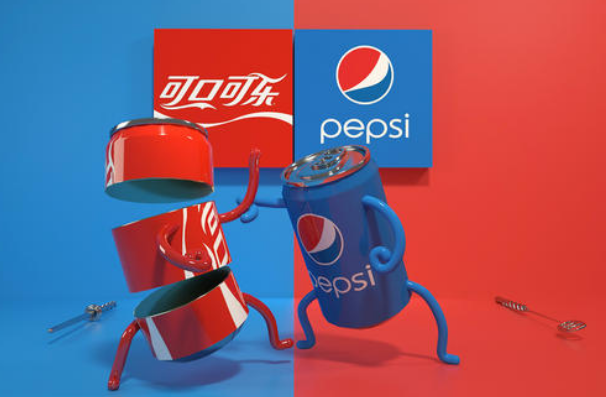エコノミスト| ペプシとおいしい広告戦争!

Cola wars
コーラ戦争
Fire-starter
放火犯
Donald Kendall added marketing sparkle to the soft-drinks industry
ドナルドケンドールは、清涼飲料業界にマーケティングのハイライトを追加します
“Rock and roller cola wars, I can’t take it any more!” cried Billy Joel in his chart-topping song from 1989, “We didn’t start the fire”. He had had enough of the intense marketing battle between America’s fizzy-drinks behemoths. As the underdog, PepsiCo had stunned its bigger rival, Coca- Cola, by signing Michael Jackson, the era’s biggest musical star, to promote its brand in a record-setting $5m deal.
「ペプシとおいしい広告の戦いは、私は本当にそれを見る方法はありません! ビリージョエルは、彼の1989年のチャートのトップ曲で叫んだ"火は、私たちが注文したものではありません。 彼はアメリカのソーダの巨人の間で激しいマーケティング戦争にうんざりしている。 ペプシコは、当時最大の音楽スターであるマイケル・ジャクソンと500万ドルという記録的な契約を結び、そのブランドを宣伝し、より大きなライバルであるコカ・コーラに衝撃を与えた。
The cola wars became a cultural phenomenon. Credit for that goes to Donald Kendall, PepsiCo’s legendary former boss, who died on September 19th aged 99. A gifted salesman, he rose quickly through the ranks from his start on the bottling line to become the firm’s top sales and marketing executive at the tender age of 35.
コーラ戦争は文化現象となっている。 これは、ペプシの伝説の元上司ドナルドケンドールは、9月19日に99歳で死亡した。 彼は才能のあるセールスマンで、充填ラインの労働者から会社の販売エリートに急速に昇進し、わずか35歳で営業部長に昇進しました。
Seven years later he was named CEO. In 1974 he injected a dose of fizzy capitalism into the Soviet Union, which allowed Pepsi to become the first Western product to be legally sold behind the iron curtain. By the time he stepped down as boss in 1986, PepsiCo’s sales had shot up nearly 40-fold, to $7.6bn. His legacy continues to shape the industry.
7年後、彼は最高経営責任者(CEO)に任命された。 1974年、彼はソ連にバブル資本主義の剤を注入し、ペプシを鉄の舞台裏で合法的に販売した最初の西洋製品にしました。 1986年に上司を退任したとき、ペプシの売上は76億ドルにほぼ40倍に急増した。 彼の遺産は、業界全体に影響を与え続けています。
Mr Kendall offered a mix of strategic vision, principled leadership and marketing flair. Two years after taking charge he acquired Frito-Lay, a leading purveyor of snacks, giving PepsiCo an advantage from diversification that persists to this day. PepsiCo’s revenues last year of $67bn dwarfed Coca-Cola’s $37bn in sales. Decades before Black Lives Matter he named African-Americans to top jobs, making PepsiCo the first big American firm to do so—staring down racists including the Ku Klux Klan, which organised a boycott.
ケンドールは、戦略的ビジョン、原則的なリーダーシップ、マーケティングの才能を組み合わせています。 買収から2年が経ち、大手スナックサプライヤーであるフィドーリを買収し、ペプシコは多角化から競争上の優位性を獲得し、今日まで続いています。 ペプシは昨年670億ドルを稼いだが、コカ・コーラは370億ドルで売上を伸ばした。 黒人の命も命を奪った運動が始まった数十年前、彼はアフリカ系アメリカ人を要職に任命し、ペプシをボイコットを組織する3k党を含む人種差別主義者に対抗するために、このようなアプローチを取る最初のアメリカの大企業にした。
But his masterstroke was the all-out marketing blitz against Coca-Cola, long the global market leader in non-alcoholic beverages. The two firms had competed for decades, but they mostly fought low-grade battles. Mr Kendall changed that, by forcing both companies into an advertising arms race. In 1975 Coca-Cola spent around $25m on advertising and PepsiCo some $18m. By 1985 those figures had shot up to $72m and $57m, respectively. In 1995 Pepsi outspent Coke by $112m to $82m.
しかし、彼のトリックは、長い間ノンアルコール飲料市場のリーダーであったコカ・コーラのマーケティングブリッツでした。 両社は何十年も競争しているが、そのほとんどは低レベルの競争である。 ケンドールは、広告軍拡競争に両社を強制的に、この状況を好転させた。 1975年、コカ・コーラは広告に約2500万ドルを費やし、ペプシは約1800万ドルを費やしました。 1985年までに、2つの広告費はそれぞれ7200万ドルと5700万ドルに急騰した。 1995年、ペプシの広告費は1億1,200万ドルで、コカ・コーラの8200万ドルを上回った。
This was a risky gambit for both cola rivals. But it paid off in two ways. First, it helped fizzy drinks win a greater “share of throat” (a term coined by Roberto Goizueta, a former boss of Coca-Cola, who died in 1997). They went from 12.4% of American beverage consumption in 1970 to 22.4% in 1985.
これは、両方のコーラ会社のための冒険です。 しかし、それはまた、2つの大きな利点をもたらします。 まず第一に、それはソーダ飲料は、(用語は、1997年に死亡したコカコーラ社の元上司ロバートゴイスエッタによって発明された用語)の大きな"喉のシェア"を獲得するのに役立ちます。 ソーダ飲料は1970年に米国の飲料販売の12.4%を占め、1985年には22.4%に上昇した。
And though Coca-Cola maintained its lead in that period, with over a third of the market, PepsiCo’s share shot up from 20% to a peak of over 30% in the 1990s. Last year carbonated-drinks sales totalled $77bn in America, and over $312bn globally. Coca- Cola and PepsiCo remain dominant.
1990年代には、コカ・コーラは市場シェアの3分の1以上でトップを維持したが、ペプシコの市場シェアは20%から30%以上に急上昇した。 昨年、炭酸飲料の米国売上高は770億ドル、世界売上高は3,120億ドルでした。 コカコーラとペプシはまだ支配的です。
The second way that the cola wars benefited both companies was by turning them into “the world’s best marketers”, observes Kaumil Gajrawala of Credit Suisse, a bank. Today a decades-long obsession with cutprice volume growth has been replaced by a focus on revenues and profits.
クレディ・スイスのコミール・グラワラは、コーラ戦争が両社に利益をもたらす第2の側面は、両社を「世界で最も良いマーケティング企業」に変えた、と語る。 今日、何十年もの間、値下げ販売の増加に執着する強迫観念は、収益と利益に焦点が当てされています。
PepsiCo in particular has relinquished some of the soft-drinks market, where its share has fallen back down to a quarter (see chart 1). But its marketing magic continues to sparkle, even if it is deployed to sell less sugary alternatives such as bottled water, coffee and energy drinks to health-conscious consumers. And over the past 40 years PepsiCo has returned nearly a third more to shareholders than Coca-Cola has.
特にペプシコは清涼飲料市場の一部を放棄し、そのシェアは4分の1に低下した。 ペプシコは、ボトル入り飲料水、コーヒー、エネルギードリンクなどの低糖質代替品を健康志向の消費者にのみ販売していますが、その販売の魔法は輝いています。 過去40年間、ペプシはコカ・コーラよりも約3分の1のリターンを株主に与えています。
In many industries a cosy duopoly retards innovation and harms consumers. The happy outcome of the cola wars has been the exact opposite. As Mr Kendall himself observed, “If there wasn’t a Coca- Cola, we would have had to invent one, and they would have had to invent Pepsi.”
多くの産業では、緊密な二重オリゴポリがイノベーションを阻害し、消費者に損害を与えます。 コーラ戦争の結果は正反対です。 ケンドール氏自身が観察したように、「コカ・コーラ会社がなければ、我々は1つ、コカ・コーラはペプシを作る必要があります。 "
キーワード:
relinquish [rɪˈlɪŋkwɪʃ] v. (特に不本意) 放棄します
boycott [ˈbɔɪkɑːt] v/n. 購入 (または使用、参加) を拒否します。 ボイコット
stun [stʌn] v. コマツを作る; (特に) 気絶; ショック(または驚き、目がくらむ)
から転送:英語の出版物はバイリンガルで読む

「発見」-「見る」に移動し、「友人が見ている」を参照します。